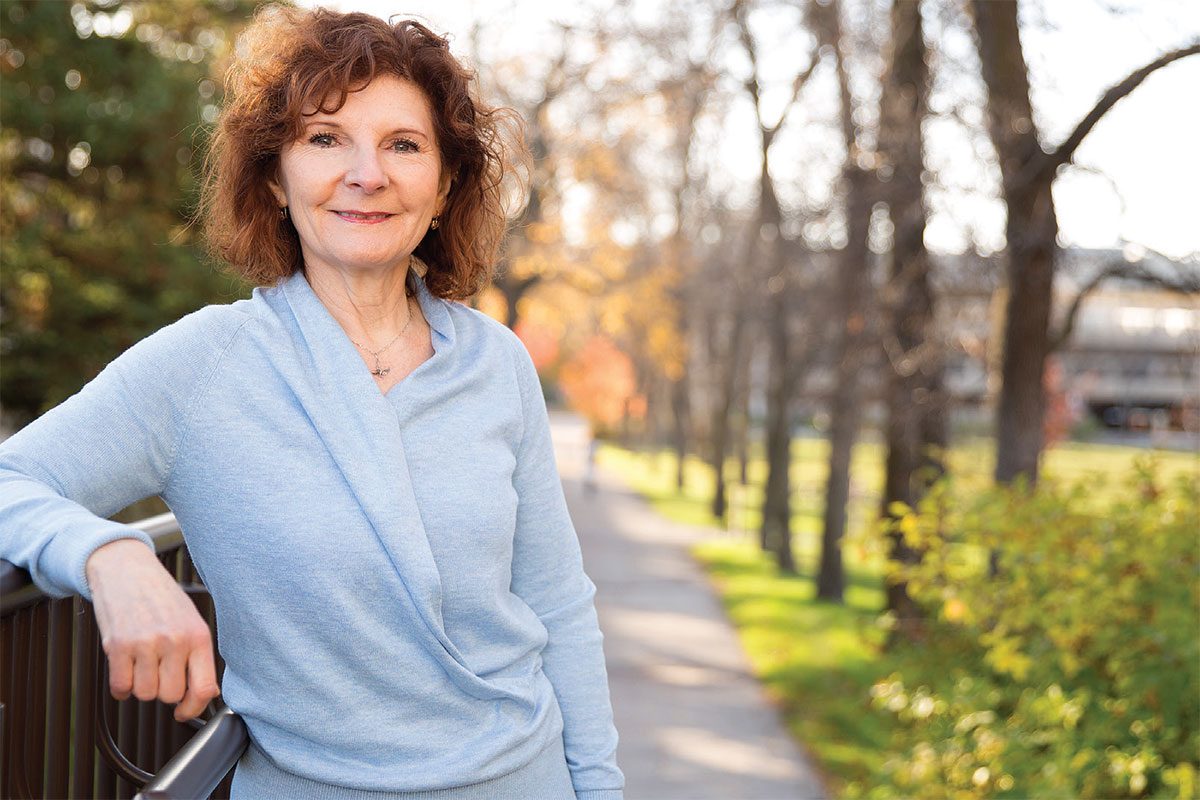
Maureen Flaherty, assistant professor in peace and conflict studies.
Bridge builder
Maureen Flaherty’s first visit to Ukraine in 2000 represented a “turning point” in her life.
She’d been invited to teach a social work course at the Lviv Polytechnic National University (LPNU) in Lviv, Ukraine. The course was part of the Canadian International Development Agency project titled Reforming Social Services: Canada-Ukraine. Eventually, her experience led her to a career in peace and conflict research.
“When I met them, my colleagues in Ukraine were trying to work through the next steps forward with democracy including reforming and building social services,” she explains.
“When I left Ukraine and the work I was doing there, I vowed to continue to work with these people,” she says. “We looked for projects that we could work on together.”
Flaherty returned to Winnipeg to complete her PhD in Peace and Conflict studies at St. Paul’s College, at the University of Manitoba, the first doctoral program of its kind and one of only few programs like it in the world. “I finished my PhD in Peace and Conflict studies based on research conducted in collaboration with the people I met in Ukraine. That first trip to Ukraine … was really life changing for me,” says Flaherty.
Now her research brings together the volunteers, NGO workers, government groups and academics working with internally-displaced people and already-present community members to address different community needs. She helps people collaborate on research to make connections and better understand their common world, supporting the development of democracy and peace and conflict education halfway across the globe.
In December, Flaherty travelled to Ukraine to further develop their research program by adding Participatory Action Research a collective, self-reflective inquiry process to understand and empower people with increased control over their lives in educational institutions, supported by Academics Without Borders (AWB), an organization that fosters post-secondary education in countries around the world. Working with faculty members at Lviv Polytechnic, she facilitated a five day AWB participatory research workshop, ‘Building Community Capacity through Participatory Research’, to inform the development of a culturally appropriate research course for graduate students.
The objective of the AWB workshop is to bring together people from different parts of the country in conflict to do research and work on a common problem. Workshop exercises and participating in research allows participants to know each other better and start to build bridges in and between their communities.
“A lot of the organizations involved know each other but they don’t often have the time to stop and get together and look at common concerns. How we might meet both agendas, further develop community and assess what the community needs while at the same time help the university develop its research agenda,” says Flaherty.
The research workshops help people to learn more about their own groups and others. For example, one exercise requires them to do parts of a needs assessment together. Participants decide on research questions, the data they will collect and how they will do it. Often participants in the workshop see potential in the information for further collaborative research. At the end of the workshop, participants complete a survey about what they found most useful. The survey results will be used as the foundation for Flaherty and other academics at LPNU to further develop the research course for students.
Summarizing the outcomes of her work, Flaherty says, “The research helps people ask questions and develop tools that will assist them to understand and live better in their own environments, enabling participants to connect better with the people around them.
“Most of the work I do is about bringing diverse communities together to find out about their common questions and concerns—bridge building between these different groups,” she adds.
“It is a real privilege.”
Story originally published in ResearchLIFE Winter 2018 Edition. Read the full magazine online.
Research at the University of Manitoba is partially supported by funding from the Government of Canada Research Support Fund.






